By Julie Slama and Glynn Wilson –
The race for president in 2020 has already begun, and a number of Democrats are already testing the waters to take on President Donald J. Trump, 72, assuming he will still be the Republican nominee and is not impeached, indicted or forced to resign due to all the scandals surrounding his election and administration.
While many Democrats would rather avoid the divisive primary fight of 2015-2016 between Hillary Clinton and Bernie Sanders, there may be no escaping it. Although there will be at least a dozen or more other Democrats on the stage, including strong women and minority candidates.
If Hillary Clinton, 71, decides to run, and she has indicated she will, she would have to be considered a front runner. The former Secretary of State, Senator from New York and First Lady won the popular vote in 2016, besting Trump with 48.2 percent of the vote, 65,844,954 votes, to Trump’s 46.1 percent, 62,979,879 votes, according to the certified final election results from all 50 states and the District of Columbia. Trump won the electoral college, on the other hand, with 306 electoral votes to Clinton’s 232.
The Hell No Caucus Isn’t Biden Their Time
Five Democratic Senators, informally dubbed the Hell No Caucus for their staunch opposition to Trump’s various nominees and appointments, have either announced their candidacy for President in 2020 or are expected to do so in the next few weeks or months.
Senators Elizabeth Warren of Massachusetts, Bernie Sanders of Vermont, Cory Booker of New Jersey, Kirsten Gillibrand of New York and Kamala Harris of California have all been interviewing or hiring team leaders and several have already scouted locations for headquarters. Harris, Booker, and Sanders were all in Iowa this past October, stumping for Democratic candidates.
Elizabeth Warren, who has served as Senator from Massachusetts since 2013, was the first to officially announce her candidacy on New Year’s Eve 2018.
She is an author and academic who formerly held tenured law professorships at both the University of Pennsylvania and Harvard. A frequently cited legal expert in the field of commercial and bankruptcy law, she was brought to Washington D.C. as Chair of the Congressional Oversight Panel during the financial crisis. She subsequently served as Assistant to the President and Special Advisor to the Secretary of the Treasury to create the Consumer Financial Protection Bureau.
Neither a globalist nor a socialist, she characterizes herself as a capitalist – but one who believes that everyone should play by the rules. Banks and Wall Street magnates fear her – so much so that they lobbied President Obama relentlessly to prevent her from becoming director of the newly formed CFPB.
Elizabeth’s father worked as a janitor after recovering from a heart attack, while her mother supported their family on one paycheck from Sears during his recuperation. She has not forgotten her roots in Oklahoma, and she champions the working and middle class.
Warren has produced or contributed to major legislation, including the Consumer Health Insurance Protection Act, which would drastically improve the affordability of the ACA by capping premiums at 8.5 percent of income, among other features. She has also co-sponsored Medicare for All and the STATES Act, which would prevent the Federal Government from interfering in states that have legalized marijuana.
Other policies she has suggested include raising the minimum wage, adding government-subsidized development of lower income housing to overpriced urban markets, and reducing student loan interest rates to the same rate paid by banks. She supports the principles of the Green New Deal, but her latest legislation has been aimed more at the corporate sector, where she would like to force more transparency about climate impact. She’s a progressive firebrand and her primary policy focus is on economic justice and reining in the overweening power and influence of Wall Street and Big Banking.
Bernie Sanders, 77, was an obscure career politician from Vermont before he vaulted onto the national stage with a platform reminiscent of FDR’s New Deal in 2015. Before reaching D.C., he served three terms as Mayor of one of Vermont’s larger cities, which residents have affectionately dubbed The People’s Republic of Burlington. His candidacy in 2016 shifted the entire Democratic platform significantly to the left.
Beltway Democrats got a strong wake up call when Bernie started filling stadiums with thousands of young voters who were eager to hear about Medicare for All and tuition free college, ideas which have been in practice in Europe for many decades, but are considered quite revolutionary in the states. He has not been idle since the election ended. This summer the Sanders Institute hosted a gathering of prominent academics, celebrities, and activists who are almost certainly helping to brainstorm what promises to be an even bigger campaign in 2020. Bernie has not yet officially declared his candidacy, nor has he changed his party affiliation from independent.
The Democrats however, still smarting and resentful over 2016, have changed the rules governing who can run under their banner. Bernie will either have to brand himself with a D or split from the main party, a schism that would almost certainly result in an easy win for President Donald J. Trump (if he is not indicted or impeached and removed from office or resigns).
Like Warren, Sanders has working class origins. He hails from Brooklyn, where his family lived in a rent-controlled apartment and watched their mother die from ailments they could not afford to treat. The Green New Deal, Medicare for All, and tuition free college are now bywords – courtesy of Bernie Sanders.
Cory Booker is beginning his sixth year in the Senate after a stint as Mayor of Newark, where he cut his political teeth in hard won races first for city council and then for the top job. From showing up in person to shovel snow, to rescuing old ladies from burning buildings and inviting Hurricane Sandy victims to stay at his home, Cory made a point of being both visible and accessible to his constituents during his tenure. He managed to reduce the city’s debt by almost half and doubled the amount of low income housing as Mayor. Violent crime dropped as a result of hiring more police, but there was a price to pay for these results in higher taxes.
He is a brilliant scholar, having two degrees from Stanford to his credit as well as a Rhodes Scholarship to Oxford and a Juris Doctor from Yale. Like the Clintons, who also had a Yale Law degree and a Rhodes Scholarship between them, he is more corporate friendly than many of his colleagues. A natural bridge builder and aisle-crosser, he often emphasizes finding commonality with one’s opponents, political or otherwise. This is a Democrat who doesn’t believe in making enemies; Sen. Booker has no problem dining with Ted Cruz just before he sponsors legislation to protect the Special Counsel or pillory Jeff Sessions.
As a President, he would probably be more of a consensus builder than a scrapper. He comes from solidly upper middle class roots in New Jersey, where both parents were executives for IBM. He supports Medicare for All, Affirmative Action, and Marriage Equality, as well as tougher sanctions on Iran.
Kirsten Gillibrand inherited her New York Senate seat from Hillary Clinton, and credits Hillary with inspiring her to enter politics, although the relationship chilled after Gillibrand was quoted saying that Bill should have resigned when the Lewinsky affair came to light. Gillibrand was also the first to call for Al Franken’s resignation, so she has been consistent in that regard.
Kirsten was the first person in Congress to publish her daily schedule, everyone who meets with her, and all earmarks in bills under consideration. She has sponsored and pushed legislation for three years to get protections in place for women who are sexually assaulted while serving in the military, and was outspoken in her call to abolish ICE.
A child of privilege, she attended private school and then Dartmouth, where she majored in Asian studies. She speaks Mandarin, and resided in both Beijing and Taiwan as a student. After receiving her law degree from UCLA she worked for a firm whose corporate clients included Philip Morris.
As a freshman Representative, she was part of the conservative Blue Dog coalition and received an A rating from the NRA, which changed to an F a few years later as Gillibrand’s positions became more closely aligned with the party and her own career moved from the House, where she represented a heavily Republican district, to the Senate — where she also needed to speak for the liberal, urban part of the state. She is a consummate politician who has never lost an election, and seems to be willing to educate herself on voter concerns, sometimes changing her positions as a result. A buttoned down attorney with a keen ear and a warm heart might appeal to a lot of voters who are tired of Congressional gridlock and the widening gulf in American politics.
Kamala Harris, beginning her third year as Senator from California, also has ties to Hillary through her sister Maya, an attorney who served as a policy adviser and was slated to move up with a Clinton Administration that did not materialize. The child of two successful immigrant academics, a seven year old Kamala moved to Montreal with her mother after her parents’ divorce, and completed high school there. She returned to the U.S. after graduation, attending Howard University followed by Hastings College of Law at the University of California.
Little known outside her home state, she has nonetheless established a progressive track record whenever possible, campaigning in Georgia for Stacy Abrams, stumping in Iowa and elsewhere for fellow Democrats, and famously grilling Brett Kavanaugh on national TV. Most of her professional life was spent as a prosecutor in California, where she ascended from ADA to Attorney General. As AG, her choice of cases gives a glimpse into her probable policy positions, including her objection to the death penalty and her prosecution of oil companies responsible for a big spill off the California coastline during her tenure. She fought hard to prevent bank foreclosures during the economic downturn, and managed to keep millions of dollars worth of property in homeowner hands. Justice tempered with mercy embodies many of her programs as AG, which aimed to reduce incarceration rates and provide a means for young offenders to complete their educations and choose a different path in life. As a Californian, her state is home to a large percentage of the nation’s Dreamers, and her support for them and their aspirations has been unwavering.
Here Come the Guvs
Jay Inslee is a fifth generation Washingtonian, the son of a high school teacher. He received a BA in economics from Washington University, followed by a JD from Willamette University School of Law. Jay entered politics after 10 years as a city prosecutor, and hasn’t looked back very often, since.
He served in Congress for a total of 15 years, and in the Washington State Legislature for four. He also spent a short time as Bill Clinton’s regional director for the Deptartment of Health and Human Services. Jay Inslee has been Governor of Washington since 2013, and served as Chair of the Democratic Governors Association for the 2018 cycle, which succeeded in flipping seven gubernatorial seats from red to blue. He intends to run for President on one issue – climate change.
It is not a bad lens for the Presidency, as climate change affects the national economy, job production, taxation, corporate control of government, and even foreign policy and immigration. As Governor of one of the greenest and most progressive states in the country, he points with pride to what Washington has accomplished. It is a state without an income tax that has still managed to be a national leader in furthering the climate agenda, increasing jobs, expanding medical coverage, raising minimum wage, deploying fleets of electric buses, and even legalizing marijuana. Gov. Inslee’s candidacy should showcase how successful progressive policy can be, and perhaps allay some doubt for voters in other regions of the country.
John Hickenlooper of Colorado is one of the more conservative candidates in the Democratic field, having been considered as a running mate at various times by both Hillary and Republican John Kasich. He is quoted as admiring John McCain’s campaign model, and describes himself as a centrist who is liberal on social policy but fiscally more conservative.
He first came to Colorado in the 1980’s as a geologist employed in oil and gas exploration and currently owns a small pub and poolroom in Denver, where he was famously trounced by Barack Obama at one of his own tables. He’s a consensus builder, almost to a fault. Members of both parties in his own legislature have from time to time called for him to exert more leadership, make a decision, and take firm stands on some hot button issues like gun control, which tore the state apart after the Aurora shootings.
Colorado is a purple state with strong factions on both sides of the aisle, and an unusual mechanism called TABOR which ensures that voters must approve any measure that would involve a tax increase, so perhaps the softer, more incremental approach to most issues has been the secret of his political survival there. He received a B.A. in English and a Masters in Geology from Wesleyan University in Pennsylvania, and hails from the Main Line Philadelphia area, a comfortably middle and upper class suburban enclave.
Steve Bullock is a native Montanan from Missoula, succeeding Brian Schweitzer, another popular Democratic Governor. He won his office comfortably in a state Trump carried by a wide margin, which speaks well of his ability to make Democratic policies attractive in lower income rural areas as well as the large urban centers where Democrats historically tend to do better. His parents both worked in education and divorced when he was in grade school.
Inslee took out loans to finish law school at Columbia, and upon graduation worked for Montana Secretary of State Mike Cooney. His career has been mostly spent in public service, where he served in Montana’s Justice Department under the former Attorney General and then as Attorney General himself, after a stint in private practice. Bullock challenged Citizens United and won at the Montana State Supreme Court level, losing the SCOTUS vote by a 5-4 margin.
Montana Republicans have the legislative majority, so Democratic policy victories tend to be hard won, but victories there have been. Steve Bullock expanded Medicaid, pushed through tough new laws on campaign finance disclosure and equal pay for women, and increased education funding during his tenure. He has also authored significant legislation protecting Montana’s rivers, and preserving public access to them. Governor Bullock has serious progressive credentials, and says that his strategy is simple: show up, listen, and address people’s concerns, which means talking pocket books more than policy.
Who Wants to Elect a Billionaire?
Tom Steyer of California made over a billion dollars running a Wall Street hedge fund, Farallon Capital Management, but does not intend to spend his sunset years sitting on a yacht. As a long time supporter of the Democratic Party, his focus since 2004 has been climate change and Trump’s impeachment. Steyer left Farallon in 2012, divesting his personal portfolio of fossil fuels.
One year later, he founded NextGen Climate and its related PAC, which is devoted to climate change action and supports initiatives and Democratic politicians to that end. Having built a considerable roster of sympathetic donors, he then used that list of concerned liberals as a springboard into his other cause – the impeachment of Trump – in 2017, taking out ads on FOX News and elsewhere, and getting over 6 million people on board with online petitions.
He comes from a wealthy New York City family and has credentials that reflect that level of privilege – Philips Exeter Academy to Yale, then on to a stint with Morgan Stanley before obtaining an MBA from Stanford. He was then employed by Goldman Sachs before starting his own fund in 1986. Mr. Steyer now resides in San Francisco, and many political experts, bolstered by his appearances and speeches in several early primary states, speculate that he could easily parlay his nationwide network of donors and supporters into a serious run for the Presidency.
Michael Bloomberg, 76, has a personal fortune that puts him on lists that end, “in the world.†Despite a lifetime of political activism and support for various projects and causes, he has never ventured to run for office himself, except for a three term stint as Mayor of New York City. He was a popular mayor for the most part, being pro-development and not disinclined to offer big tax breaks to businesses that would commit to remaining in the city. His tenure saw teacher pay raises, a serious commitment to cleaner air, and a focus on improving health and fitness in the population by making fresh fruits and vegetables more widely available, a smoking ban, and an ill-fated attempt to prevent the sale of any sweetened soda larger than 16 oz.
Large sums were also spent on improving playgrounds for children, and one million trees were planted in a project that finished two years ahead of schedule. His current focus is on climate change, specifically ocean preservation and clean up, and he has donated hundreds of millions to that cause. Bloomberg has recently served as a U.N. Special Envoy to promote the climate agenda. Speculation abounds that he may enter the race for President in 2020, but such speculation was also present in 2008 and 2016. He ran for mayor as a Republican and also as an Independent, but has now switched his party brand back to Democratic, adding to the buzz about a possible candidacy.
Still Backstage
Beto O’Rourke of Texas spent most of his life in El Paso, the son of comfortably upper middle class parents with long connections to Democratic politics. His mother was the step daughter of JFK’s Secretary of the Navy. His father Pat served in local politics as County Commissioner and then County Judge. Pat O’Rourke had political associations with former Governor Mark White, and ran Jesse Jackson’s two campaigns in Texas.
Beto was packed off to an all male boarding school in Virginia for his last two years of high school, and interned for U.S. Congressman Ron Coleman during his gap year before entering Columbia University, where he received a B.A. in English Literature. Beto seems to have been at somewhat loose ends after leaving college, living a typical aspiring rock musician’s life holding a series of odd jobs, rather than that of a sharp young politician on the make.
Returning to El Paso, he started a software and web development company which also published a newspaper called Stanton Street. His wife Amy, daughter of a local billionaire real estate developer, now runs the business. As a young business owner and family man, he began to connect with local service and business organizations, which undoubtedly helped him win his first election to the El Paso City Council. He served for six years there, and was then elected to the U.S. House of Representatives, where he also served three terms. He is a Centrist and part of the New Democrat Coalition, who votes with the GOP about 30 percent of the time, unsurprising for one representing a deeply Republican state.
Beto has espoused many popular progressive causes, backing a repeal of marijuana laws and supporting LGBTQ civil rights. He supports a carbon tax, better treatment of immigrants with an Ombudsman for DHS, and backed progressive Tim Ryan in his recent bid to succeed Nancy Pelosi as Speaker. His recent battle with Ted Cruz for the Senate set the state on fire, and he ran the best funded and most publicized campaign in the country, raising $80 million. His brand of shoe leather and personal politics with the addition of frequent live streams puts the public in mind of Barack Obama and Alexandria Ocasio-Cortez, and he engenders a lot of enthusiasm in his supporters. Perhaps the aspiring rock star has found a proper outlet in politics after all.
Joe Biden, 76, thinks he is the best qualified person to be President, and in terms of experience he is correct, after serving over 30 years in the Senate and two terms as Vice President. Voters who favor a solidly centrist agenda will find Biden a comfortable, well known candidate. He is a great campaigner with a lot of natural magnetism that should draw sizable crowds.
Whether a Biden candidacy can hold onto the young, diverse, progressive base that turned out for the midterms is unknown. Democratic politics has shifted significantly in a very short time, and older politicians are suspected of being behind the electorate, rather than leading from the front. The existence of Trump may be a sharp enough goad to cement voters around a popular, moderate Democrat, but it could come at the price of costing the nation’s future leaders adequate time to make their case in a national forum.
A Biden Presidency would certainly reinstate VAWA, one of his centerpiece legislative accomplishments, and probably revisit the assault weapons ban, which he also strongly supported. Fear of the famous gaffes, known in Obama’s circle as “Joe bombs,†should be allayed quite a bit in the presence of an opponent whose entire tenure in office could be characterized as one never-ending gaffe.
Biden has plenty of experience negotiating with Mitch McConnell, and on at least two occasions has wrestled him to a draw on getting modified tax packages through Congress. Neither instance could be described as a Democratic triumph, however. On health care, Biden would likely try to take back lost ground for the ACA, and he has expressed support for letting the government negotiate Medicare drug prices. Health care for all has not been a part of his rhetoric since leaving office. On climate change he has expressed disapproval of leaving the Paris accords, and described it as “the existential threat of our timeâ€.
Andrew Gillum ran a nail-biter of a campaign for Governor of Florida, which has served to ensure his place as a rising star in progressive Democratic politics. The son of a construction worker and a school bus driver, he attended Florida A & M and received a B.A. in Political Science. He put his degree to use before he even graduated, mounting a successful campaign for City Commission in Tallahassee, the state capitol. He spent 11 years in that office before being elected Mayor, and has staunchly defended progressive policies including Medicare for All, $15 minimum wage, and increases in education spending.
Bernie Sanders endorsed his candidacy and made two appearances in Florida on Gillum’s behalf. Since his recent defeat, he has also met with President Obama at his D.C. office, which was widely reported as going overtime. Initiatives he undertook as mayor often included networking round tables which brought together mayors of many similar cities, business leaders in his own city to hear about the advantages of early childhood education, a mentors association aimed at supporting high risk youth, and a yearly dinner event which brings together about 350 local representatives of diverse ethnic and religious groups from the city. He enabled public-private partnerships to further early childhood education, and led a successful campaign to remove criminal records check-off boxes from employment applications in an effort to give former convicts a helping hand back into society.
He has a less merciful attitude toward the current occupant of the White House, calling publicly for his impeachment. Having only served four years as a mayor, he has less experience than many of his colleagues, and none at the federal level. Perhaps that deficit will be rectified soon.
Amy Klobuchar of Minnesota, a popular Senator just starting her third term, has an impressive record of passing legislation – over 100 pieces of it. Her first legislative victory came before she even held elected office. She addressed the state legislature about her experience of being forced to leave the hospital with a sick infant after only 24 hours to recuperate from childbirth, which resulted in passage of a minimum 48 hour stay.
Bill Clinton would later make this a Federal policy. She’s a workhorse who knows how to get things done and chooses her battles carefully, which has led to speculation by both peers and pundits that she could well become the first woman President. Her public persona has been honed well. She has the Obama quality of aloofness which can become warm and approachable as required. Her Minnesota niceness would provide an excellent foil for an opponent who revels in schoolyard bullying tactics to cow rivals, while her prosecutor’s training could very well make for some memorable moments in debate, as it did for Brett Kavanaugh when she questioned him closely about whether he had ever been subject to an alcoholic blackout.
She is a liberal centrist who endorsed both Barack Obama and Hillary Clinton for their respective nominations. She favors the ACA, gun control, and supports lowering the price of prescription drugs. She has passed several pieces of legislation aimed at preventing human trafficking, and also co-sponsored the STATES Act, aimed at protecting states with legal marijuana from federal interference. She’s a native Minnesotan, daughter of a school teacher and a sports writer whose battle with alcoholism split the family when she was in her teens. She received a B.A. magna cum laud in Political Science from Yale, and her J.D. from the University of Chicago School of Law, where she also co-edited the Law Review.
Sherrod Brown of Ohio is the working man’s candidate, which is why he was able to win elections in a state that went for Trump. Winning elections is a regular occurence for Brown, who began his political career in 1975 in the Ohio Legislature, moving to Ohio Secretary of State, then the House, and finally the Senate in 2007.
Brown’s brand of populism appeals to working people, and he does it without the racism, xenophobia, and tax cuts for the 1% that the current administration purveys. He has a solid track record on civil rights issues and a pragmatic approach to putting as many pennies as possible back into his constituents’ wallets, for which he is appreciated and re-elected. He has published a plan on his Senate website titled, WORKING TOO HARD FOR TOO LITTLE: A Plan for Restoring the Value of Work in America.
The plan is reminiscent of German labor agreements, which include unionized work forces with representation in the boardroom, better wages and benefits, and better training. He supports the $15 minimum wage, supported gay marriage well before most of his colleagues, and has affirmed his solidarity with the Black Lives Matter movement.
Senator Brown adopted the progressive position on health care as a right back in 1999 but he has not co-sponsored Medicare for all. He supports a more incremental approach, advocating a Medicare opt-in at age 55 rather than a total expansion. Ranking Member of the Senate Banking Committee, he allied with Elizabeth Warren to stop the Dodd-Frank rollbacks, but the pair were ultimately defeated by both the Republicans and the centrist wing of their own party, who, to be fair, had been negotiating on this particular piece of legislation for four years. Brown was also one of the prime movers behind the effort to reinstate Glass-Steagal, with similar results. Many members of Congress are speaking with Federal workers during the current shutdown, but only Brown was down in the basement speaking to the contract workers, who will never be repaid. Sherrod Brown is trying to fix that. He would.
Lesser Known Candidates
John Delaney of Maryland is an American success story. A self made multi-millionaire, Mr. Delaney hails from a working class background in New Jersey, where his dad was a union electrician. Delaney studied at Columbia University with help from his father’s IBEW scholarship fund, and then went on to Georgetown Law School.
He has left the House of Representatives after three terms to pursue the Presidency full time. Since announcing in July 2017, he has visited every county in Iowa; his name recognition there is now well over 70 percent.
In his spare time he does the same in New Hampshire, another early battleground state. He’s a business friendly candidate who made his fortune in commercial lending, forming two publicly traded companies which have since been sold – Health Care Financial Partners and CapitalSource. He has a pragmatic, bipartisan approach to politics which puts him squarely in the Third Way camp.
Although on board for some kind of universal health coverage, he does not support Medicare for All, preferring to expand Medicaid further while maintaining insurance-based coverage for those who prefer and can afford it. He does support a carbon tax and a $15 minimum wage, but has stated that his first 100 days would be devoted to passing only legislation that has bipartisan support. He is carving a niche for himself as a unifier, peacemaker, and pragmatist who wants to dial back the partisanship and get something done. He is taking a determined, hard-work-and-shoe-leather approach to realizing his ambition. That approach put a working class kid into several boardrooms as CEO; it might work again.
Julian Castro is another American success story – with a Latino flavor. He hails from San Antonio, Texas where he and his twin brother were raised by a single mom with the help of extended family after his parents separated. The boys grew up eating and sleeping progressive politics; their mother Rosie was a prominent local activist and organizer in the community. The family did not own a car, and at one point subsisted on charity from friends after his mother was laid off from work. Both brothers attended Stanford through Affirmative Action, and made a success of their student days there, elected to the student Senate in their junior year.
It was then on to Harvard Law where both received their JD and began practice with a local firm. His heart still in politics rather than corporate law, Julian made a successful run for city council, beginning his campaign while still a third year student at Harvard. He had a good reputation as a council member who listened respectfully to his constituents. The hard lessons began there, too. He took on a development company with controversial plans for a PGA golf course on the edge of town, which cost him his first election for Mayor.
Wiser in the ways of the world, he hired his opponent’s former campaign manager, built bridges into the corporate and business community, and successfully ran for Mayor after his opponent termed out. San Antonio did well under his leadership, adding Pre-K and college counseling centers through public-private partnerships. He won his subsequent election by a large margin. Tapped by Barack Obama for a Cabinet position as Secretary of Housing and Urban Development, he was able to bring his newfound insights from the municipal level into his DC job, and Castro was on a short list of possible VP picks for Hillary. He has formed an exploratory committee for the Presidential run, announced in mid December.
Jeff Merkley of Oregon was the only U.S. Senator to endorse Bernie Sanders in 2016. He brings a strong, reliable, progressive game. Along with Sherrod Brown , a Democrat from Ohio, Merkley introduced legislation, the Ban Conflicted Trading Act, that would prevent Congress members and staffers from trading in individual stocks. While the Stock Act addresses some of those concerns in the Senate, there is still no legislation preventing House members from trading.
Merkley’s plan would force Congress to move their money into diversified funds, which would probably pave the way for another progressive dream – a small tax on trades. Along with his fellow progressives, Jeff Merkley comes from working class roots, and is the first of his family to attend college. He has a B.A. from Stanford in International Relations, and a Masters in Public Administration from Princeton. He gained experience at the Federal level while still a student – serving as a postgrad fellow at the Department of Defense, then working as an analyst for the Congressional Budget Office.
Upon returning to Oregon, he served as Director for the state office of Habitat for Humanity. He has introduced legislation in support of LGBTQ equality, campaign finance reform, and filibuster reform. It was Merkley who held the Senate floor in a spectacular filibuster lasting 15 hours and 28 minutes to protest the Gorsuch SCOTUS nomination.
Merkley spent 12 years in the Oregon House of Representatives before assuming his Senate seat in 2009. He takes a strong interest in the conditions for children and asylum seekers detained at the border, and has made two trips with cameras in order to publicize their plight. Though his usual persona seems to be fairly low key, he can make use of drama in a good cause, and perhaps will draw on that talent during a run for President.
Notes from the Track: Three Dark Horses in the Gate
Andrew Yang, 44 is a unique candidate in three ways: he has never held elected office, he will be the first Asian-American to run for President, and he will be running on a platform centered around a UBI, or Universal Basic Income. His candidacy will be notable for introducing the UBI into the national consciousness, just as many previous candidates did their part to popularize the idea of a national health care system. Yang has done a lot of number crunching on the issue, and makes some persuasive arguments in its favor which would include protecting workers displaced by robotics and AI, getting people off welfare and SNAP with their built in disincentives to find employment, and encouraging entrepreneurship and cottage industries with the safety net of a small guaranteed income and health coverage through a Medicare for All program. He proposes a UBI of $1,000/month for all citizens starting at age 18. Non-citizens would not be eligible. For policy details see his campaign website .
Andrew was born in Schenectady, New York to Taiwanese parents who met while attending graduate school at the University of California, Berkeley. He attended Philips Exeter Academy followed by Brown University, where he earned a B.A. in Economics. He then went on to earn a J.D. from Columbia Law School, but spent only a short time as a corporate attorney before deciding his path lay elsewhere.
He has spent most of his career as an entrepreneur, in areas ranging from philanthropy to healthcare software, followed by a GMAT prep company and lately Venture for America, a two year fellowship program for young, bright grads to learn entrepreneurship and startup strategies in targeted cities. The program grew from its initial $200,000 grant to a $6 million dollar operating budget, earning Yang two recognitions from the Obama Administration: as a Champion of Change in 2012, and as a Presidential Ambassador for Global Entrepreneurship in 2015. Andrew Yang will present the most revolutionary thinking of the 2020 field by far, and although he has little name recognition at present he is working hard to change that, primarily in Iowa and New Hampshire where he has visited seven times to date.
Pete Buttigeig, 37 (pronounced Buddha-judge) has formed an exploratory committee and looks likely to run in 2020 as the first openly gay Presidential candidate. He and his partner, Chasten Glezman, were married in the Episcopal Church, where he is a member. Pete recently completed his second term as Mayor of South Bend, Indiana, his home town, where at age 27 he was elected in a landslide and re-elected by an even bigger margin. Mayor Pete, as he is known in South Bend, was a Rhodes scholar and Harvard grad and is still a Navy Reserve Lieutenant, completing a seven month tour in Afghanistan during his term as mayor while his deputy temporarily ran the city.
He engendered a lot of interest from the Democratic party establishment with his campaign to revitalize a rust belt city like South Bend, making progress with his 1,000 Properties initiative, which saw the rehabilitation, repurposing, or destruction of abandoned and decrepit industrial and residential sites. South Bend, home to University of Notre Dame, has managed to draw an influx of new residents to a city which was formerly declining in population. Buttigeig’s primary political focus is also on rehabilitation – reclaiming the Democratic Party’s lost status as the party of the middle and working class, while acknowledging that “you can’t ‘unglobalize’ the worldâ€.
He seems to be an extremely bright young man, with some experience as both a candidate and a consultant to others, and has attracted attention and encouragement from Democratic luminaries Howard Dean and Barack Obama. He impressed many elder politicians with his campaign for DNC Chairman, losing to Tom Perez, but he has yet to articulate a platform or any substantive policy statements appropriate for a national campaign. Rather, most of his pronouncements lean into his management consultancy background; he speaks often of introducing younger faces, running as a gay millennial, reclaiming Democrats’ lost ground and other image-related concepts. As of today, he seems more suitable in the role of political consultant than a Presidential candidate, but, as with his website https://www.peteforamerica.com/meet-pete/ , we will watch this space.
Tulsi Gabbard, 37 is on track to become 2020’s Dennis Kucinich. She’s a leftwing populist with a very strong anti-war platform and more than a whiff of past conservatism on issues of sexual morality. Home schooled for most of her childhood by a Hindu mother and a Roman Catholic father, it is perhaps unsurprising that early on in her career Tulsi held rabidly anti-gay and anti-abortion positions, which she has since eschewed. She now has a 100% rating from Planned Parenthood and NARAL and has proven herself willing to support gay marriage rights and equality measures, voting in favor of them since 2012. Like Kucinich, she also has a track record of bucking her own party when their views conflict with her own, and famously resigned her position as Vice Chair of the DNC to endorse Bernie Sanders in 2016, citing her discontent with Clinton’s foreign policies.
No politician has made the leap from the House to the Presidency since Garfield, and Gabbard looks unlikely to accomplish that feat in light of the ill will she has accrued from her own party elite, who have both long memories and long knives. She most recently broke ranks when she “both-sided†the government shutdown fiasco, blaming Democrats equally with Trump, even though both Houses had passed bipartisan bills previous to the shutdown. Other recent defections occurred when she paid a visit to Trump Tower during the Presidential transition to advocate for maintaining the Assad regime in Syria, following that up with a meeting in Damascus accompanied by none other than Kucinich himself. She has not condoned the chemical attacks, although she has expressed doubt as to whether Assad was personally responsible.
Like Trump, she has castigated fellow Democrats (including Barack Obama) for failing to use the phrase “radical Islamâ€, and voted for additional restrictions on refugees from Syria and Iran in 2015. She did not, however, support the Trump travel ban, saying that enhanced vetting was sufficient. Unlike Trump, she has condemned the Saudi-led offensive in Yemen. The Kingdom would find itself out in the cold in the event of a Gabbard Presidency, and Israel would be assured of maintaining the traditional alliance.
She has a very strong record on climate change, entirely expected for one representing an island state. She also ticks most of the progressive boxes on health care, free or reduced-cost college, legalizing marijuana, opposing TPP, reinstatement of Glass-Steagall, not accepting corporate donations, and the $15 minimum wage.
Unlike the other long shots, Tulsi does at least have a political track record, beginning with a one year stint on the Honolulu City Council followed by one term as a State Representative, which she won at the age of 21. She is just finishing up her third term in the U.S. House of Representatives, where she occupies Mazie Hirono’s old seat now that Hirono has ascended to the Senate. She is a Major in the Hawaii Army National Guard, and volunteered for a 12 month tour in Iraq, where she served with the 29th Support Battalion medical company. Since graduating from OCS in Alabama, she now serves as an Army National Guard MP. She holds a B.S. in Business Administration from Hawaii Pacific University.



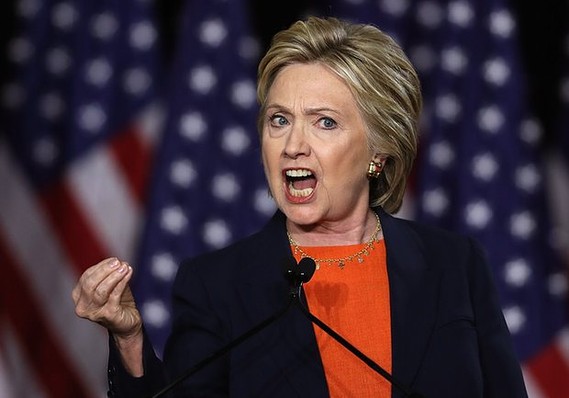
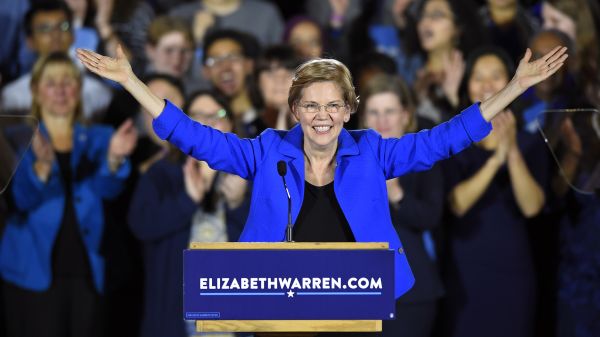
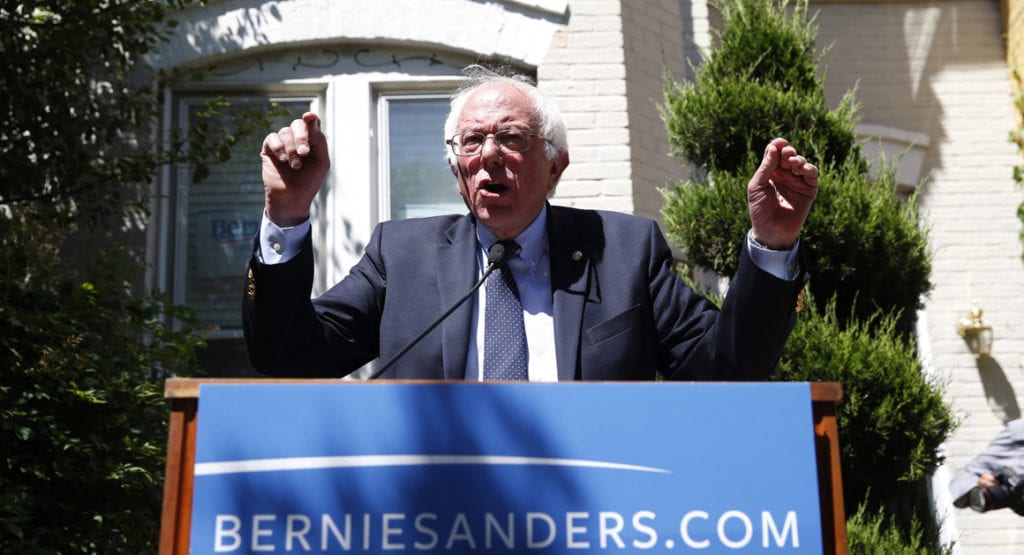
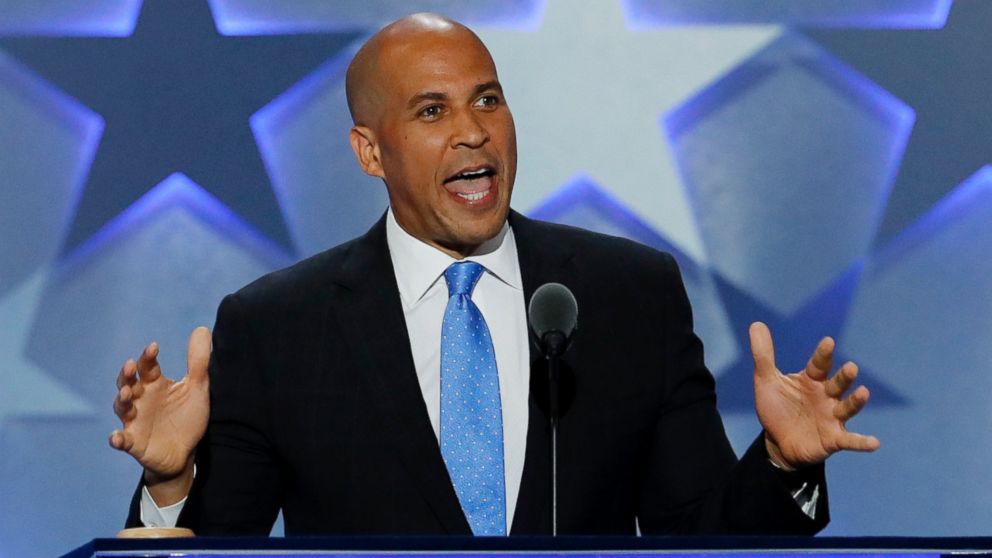
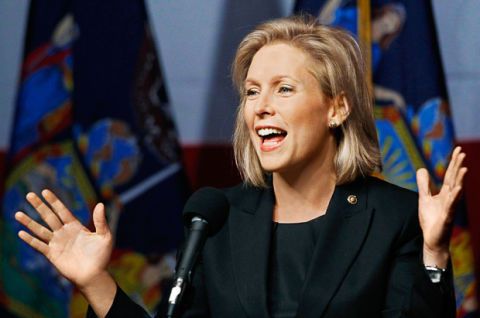
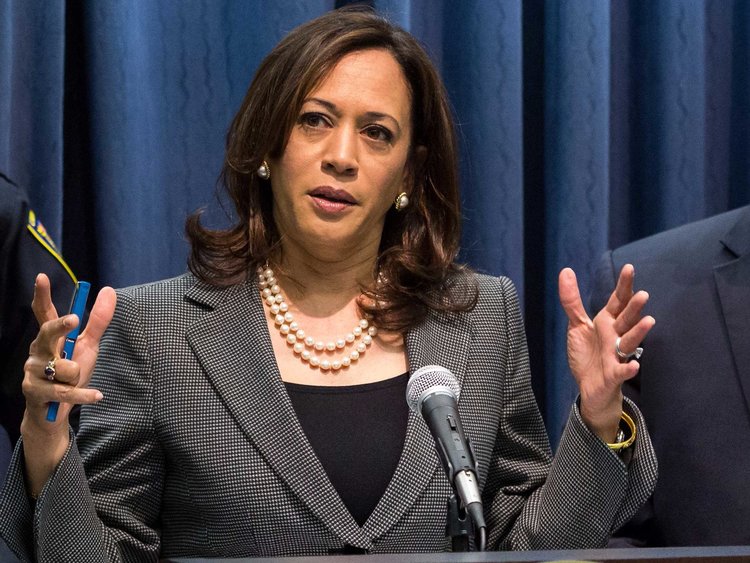
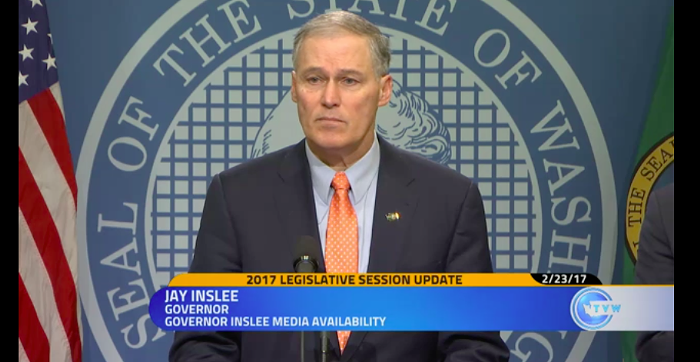

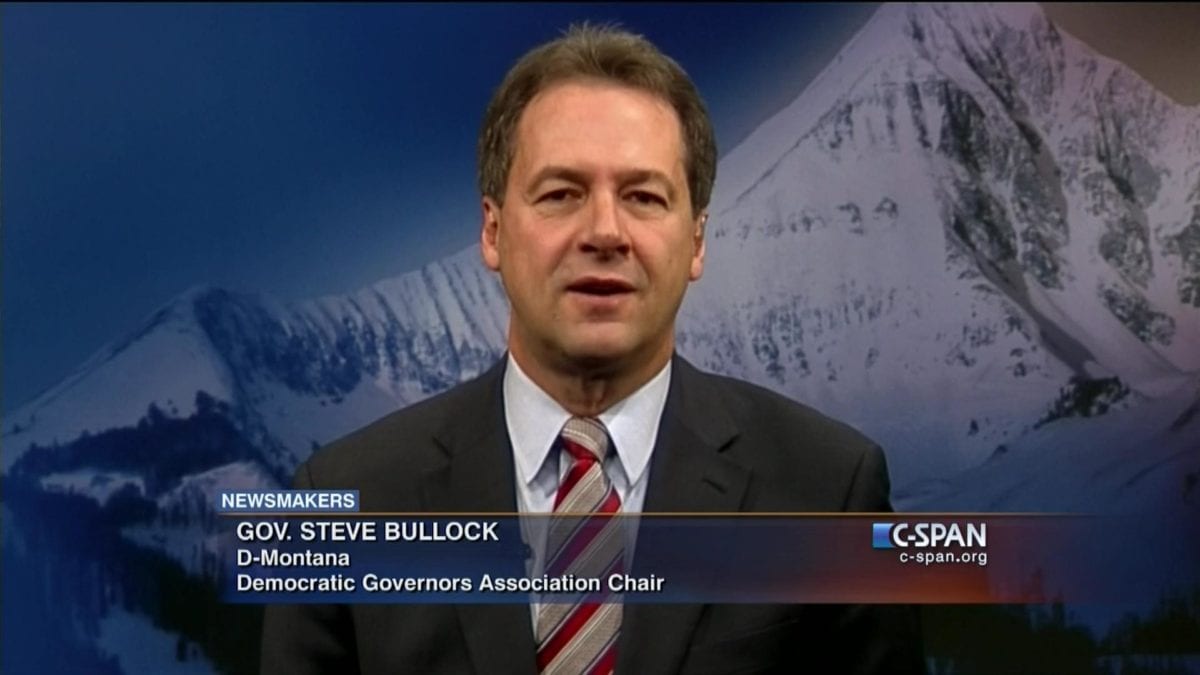
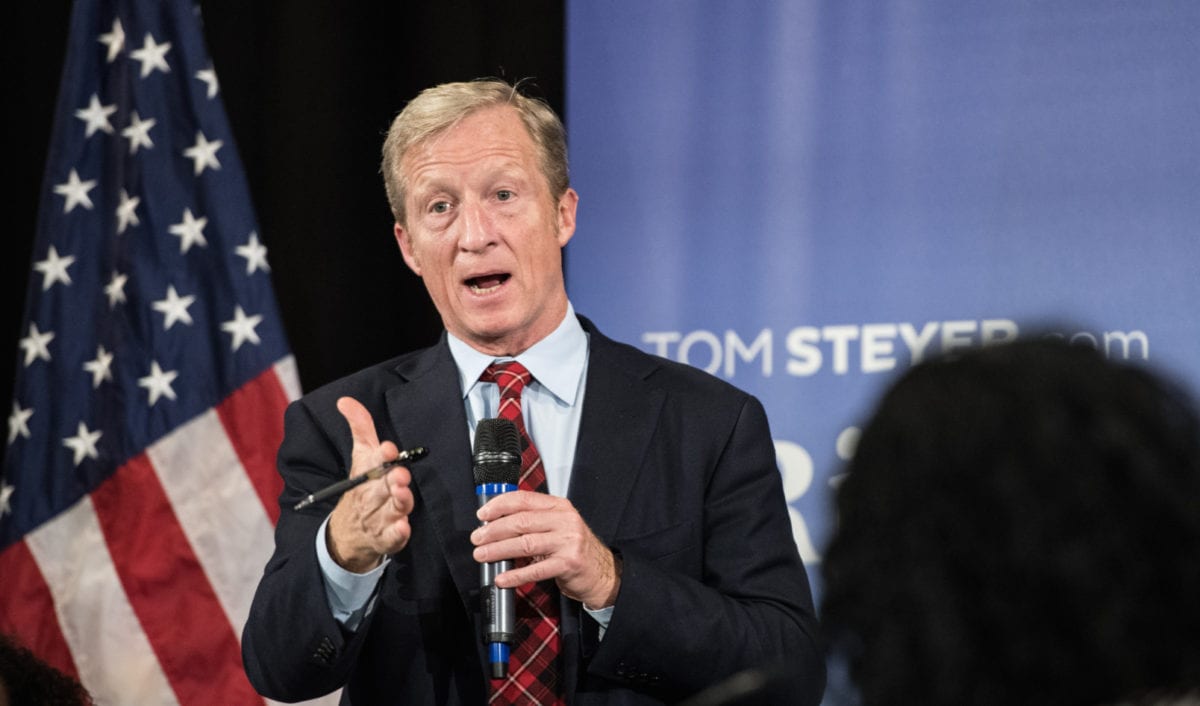
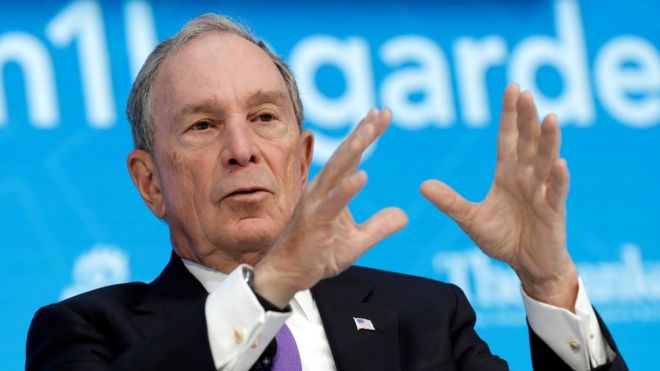

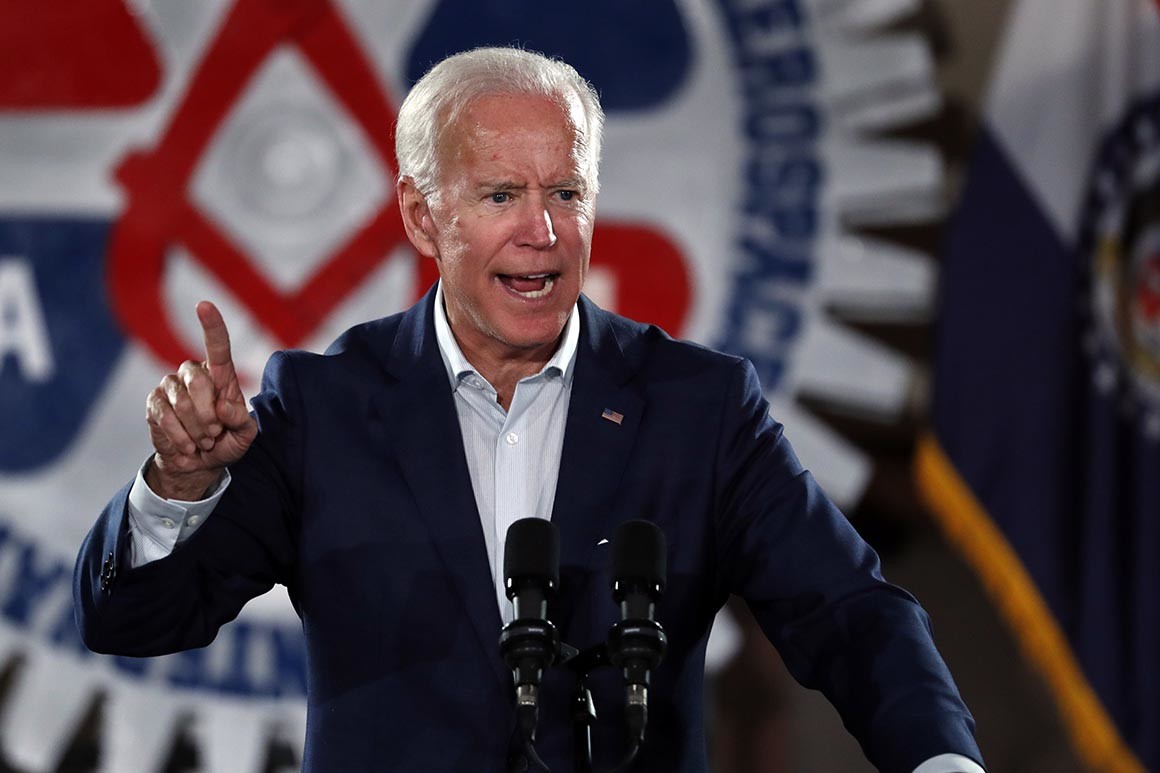
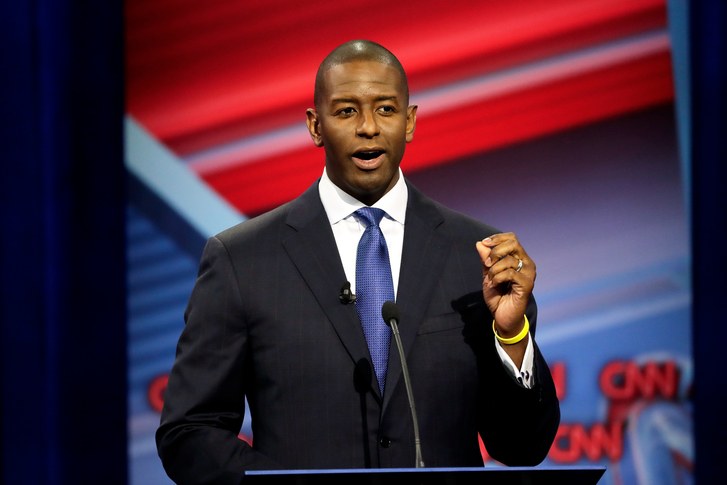
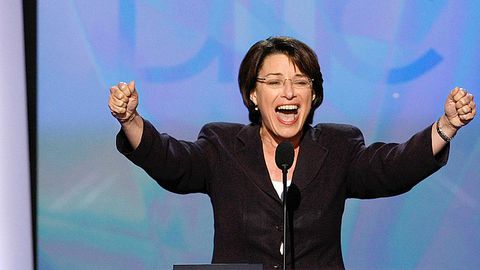
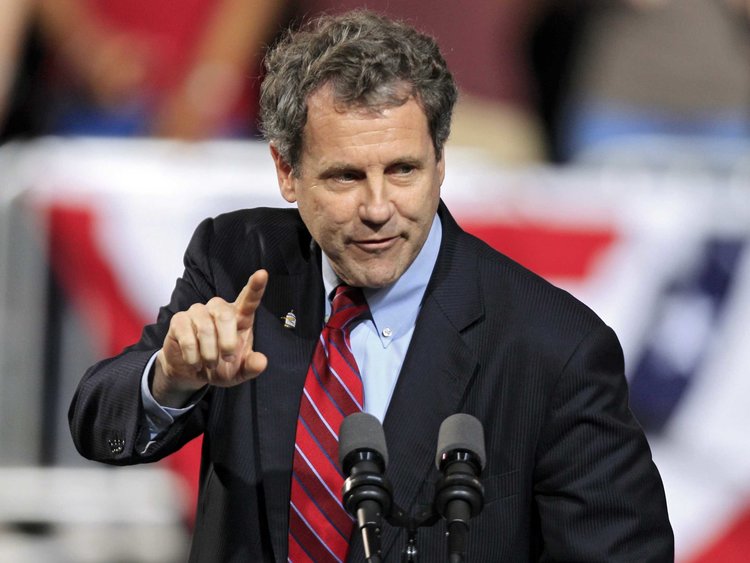












Informative… hope this will not be a replay of the AZ governor’s race where a Republican incumbent, who could have been beaten, had the DEMs not found an unsavvy, foot-in-the-mouth, even more unpopular candidate… a higher power saved the DEM senatorial candidate, even though she was endorsed by the McCain family, yet found time to protest in a pink tutu and blab about gender equality to voters she may have won over if common sense had prevailed (she ended up winning by about 1 percentage point). Sadly, the (R) governor did appoint the losing senate candidate, the military veteran McCain opposed, to the vacant senate slot- we need to learn from these examples!